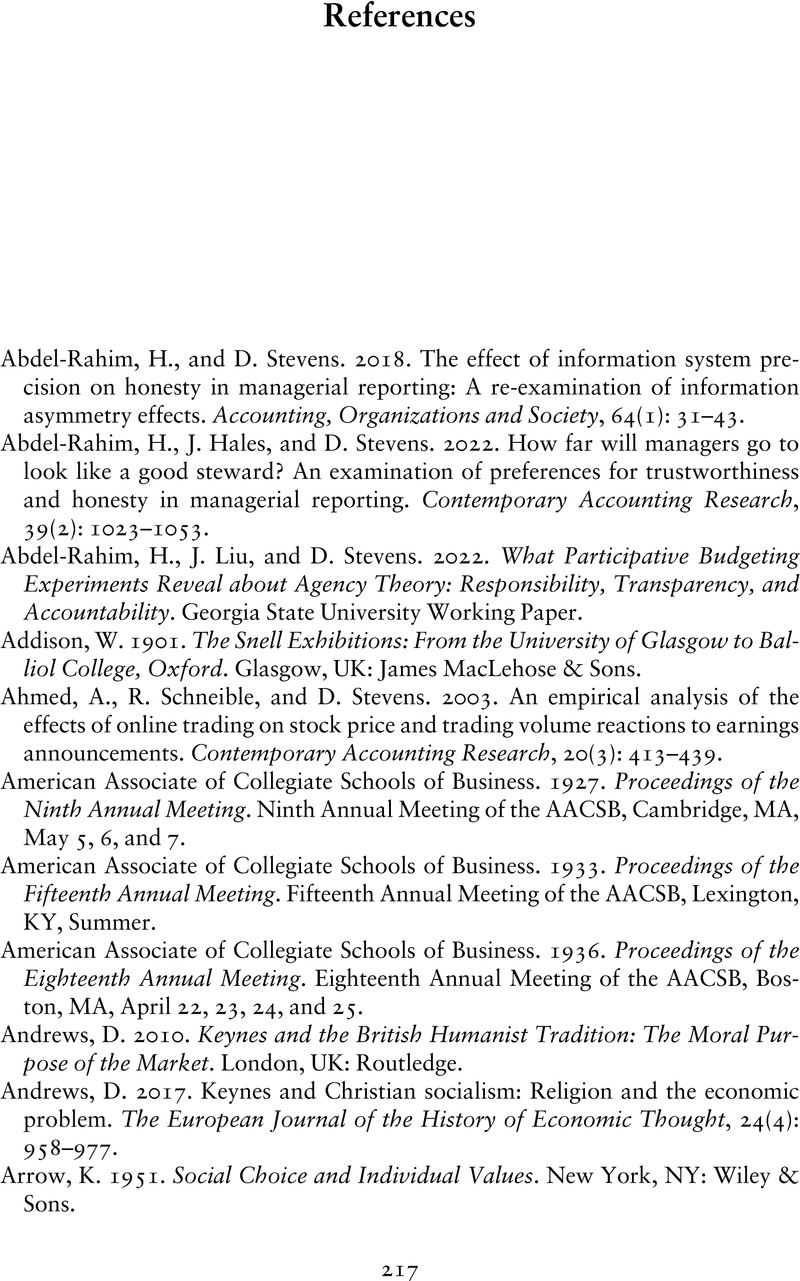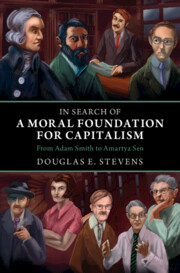Book contents
- In Search of a Moral Foundation for Capitalism
- In Search of a Moral Foundation for Capitalism
- Copyright page
- Dedication
- Contents
- Preface
- Acknowledgments
- 1 Introduction
- 2 The Moral Economist
- 3 Religion as a Moral Foundation
- 4 Humanism as a Moral Foundation
- 5 Self-Interest as a Moral Foundation
- 6 Neoclassical Economists Join the Search
- 7 Rescuing Capitalism from the Capitalists
- 8 The Promise of Capitalism
- References
- Index
- References
References
Published online by Cambridge University Press: 23 November 2023
- In Search of a Moral Foundation for Capitalism
- In Search of a Moral Foundation for Capitalism
- Copyright page
- Dedication
- Contents
- Preface
- Acknowledgments
- 1 Introduction
- 2 The Moral Economist
- 3 Religion as a Moral Foundation
- 4 Humanism as a Moral Foundation
- 5 Self-Interest as a Moral Foundation
- 6 Neoclassical Economists Join the Search
- 7 Rescuing Capitalism from the Capitalists
- 8 The Promise of Capitalism
- References
- Index
- References
Summary

- Type
- Chapter
- Information
- In Search of a Moral Foundation for CapitalismFrom Adam Smith to Amartya Sen, pp. 217 - 230Publisher: Cambridge University PressPrint publication year: 2023



